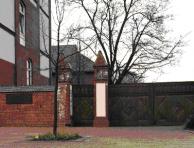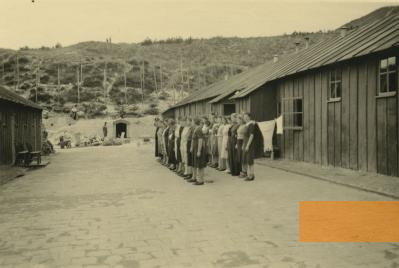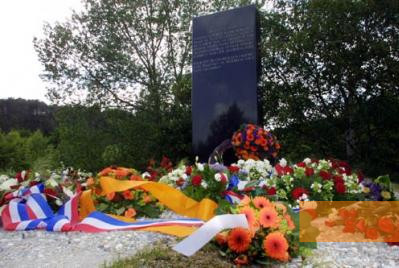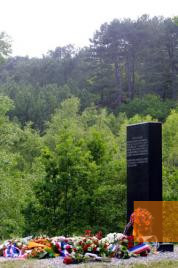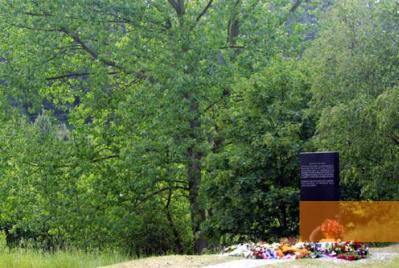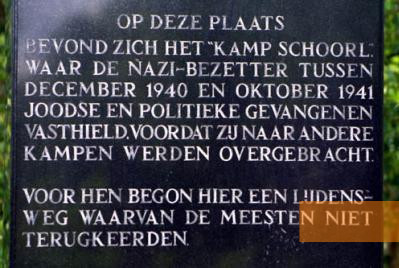In 1991, a memorial was dedicated to the victims of the »Police Transit Camp Schoorl«, which was in operation in 1940/41.
In 1939, the Dutch army set up a barracks camp close to Schoorl, a village near Alkmaar in the northern Netherlands. Following the invasion by the German Wehrmacht, it was transformed into a transit camp by the occupation authorities. In the first months of its existence, the camp was used to intern citizens of the states Germany was at war with. Later, there were various categories of prisoners in Schoorl: Jews, who were arrested between February and June 1941 during raids in Amsterdam, Soviet citizens, political prisoners, former pilots of the Dutch army, civil hostages as well as convicts. The camp existed between May 1940 and October 1941. Most of the prisoners were held at the camp for only a short period of time after which they were either released or transferred to another camp. The living conditions at the camp were better than in concentration camps in which the inmates were transferred to afterwards, so there were no fatalities at Schoorl. The camp was dismantled when the Amersfoort camp was taken into operation and the prisoners were deported to the new camp. The premises were eventually taken over by the Wehrmacht.
For many prisoners Schoorl was only the first of many camps. No inmates died in the camp, although some were later murdered at other sites. Of the 1,900 prisoners to pass through Schoorl, about 1,000 died in other concentration camps. The approximately 700 Jews who were arrested in raids in Amsterdam in 1941 were deported to the Buchenwald and Mauthausen concentration camps following a short stay at Schoorl. Probably only two of them survived.
After liberation, the camp was used as an internment camp for collaborators. Up to 2,000 prisoners were held at Schoorl until the camp was taken over by the Dutch army in 1946. In 1949, the authorities decided to tear down the camp. The premises have since then been a nature reserve. The forestry authority runs a visitor and information centre, which has since 1991 presented an information board about the history of the camp. That same year, a monument was erected on the initiative of the Freundeskreis Mauthausen Foundation in honour of the former prisoners. The three primary schools of Schoorl jointly tend to the monument. Each year on June 11, the Bergen parish council organises a commemorative ceremony.
- Name
- Monument Kamp Schoorl
- Address
-
Oorsprongweg, Schoorl district
Bergen - Web
- http://www.kamp-schoorl.nl/
- hans.teijgeler@quicknet.nl
- Open
- The memorial is open at all times.
